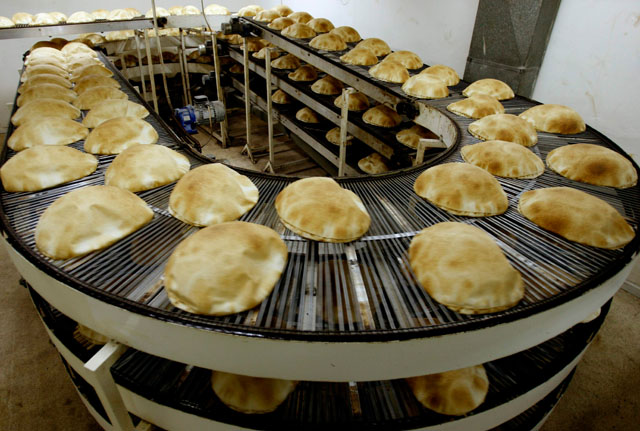AMMAN –– Wheat imports increased by nearly 30 per cent over the past two years due to the “large” influx of Syrian refugees, a government official said on Thursday.
According to Yanal Barmawi, spokesperson for the Ministry of Industry, Trade and Supply, wheat imports rose from around 800,000 tonnes per year to over 1 million tonnes to meet the rising demand for bread caused by the presence of more than half-a-million Syrian refugees in the Kingdom.
Official figures estimate the number of Syrians who have sought refuge in Jordan since the onset of the conflict in their country in March 2011 at 611,932, of whom 114,092 are camp residents.
There is a similar number of Syrians living in Jordan who are not registered as refugees. Authorities put the overall number of Syrians in the Kingdom at around 1.3 million.
Hosting this “large number” of Syrians has placed heavy financial burdens on the country and on basic food commodities, most of which are subsidised by the government, Barmawi told The Jordan Times over the phone.
Bakeries in the northern governorates, which host around 50 per cent of the Syrians residing in the country, have been complaining of shortages of subsidised flour due to growing demand for bread.
Abdul Ilah Hamawi, president of the Bakery Owners Association, previously told The Jordan Times that several bakeries in Mafraq and Irbid are unable to meet the sharp increase in demand.
The government provides bakeries across the Kingdom with subsidised flour at around JD36 per tonne while the actual cost on the budget is estimated at JD305 per tonne, according to the minister of industry, trade and supply.
Earlier this week, Minister of Industry, Trade and Supply Hatem Halawani said the government is working to find new subsidy mechanisms for bread that would target Jordanians only, citing direct cash transfers as the best option as it has been applied for over a year to deliver fuel subsidies.
The government estimates the value of the flour subsidy and basic commodities at JD260 million, from which non-Jordanian residents also benefit.
